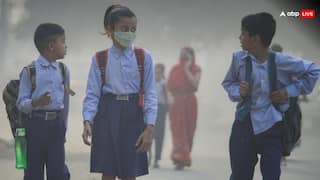Nipah Death In Kerala: Symptoms, Treatment, Prevention, Helpline Numbers & All You Want To Know
20 high-risk primary contacts of the patient have been placed under observation. Two of them are healthcare workers, who have been identified with symptoms of Nipah virus.

New Delhi: The Nipah virus, which killed many in Kerala in 2018, has returned to the state and claimed the life of a 12-year-old boy in Kozhikode on Sunday.
The boy had symptoms of encephalitis and myocarditis, and he was admitted to hospital on September 1.
As many as 20 high-risk primary contacts of the patient have been placed under observation.
ALSO READ | After Nipah Patient's Death In Kerala, Tamil Nadu Steps Up Fever Surveillance At Border
Among them are two healthcare workers, who have been identified with symptoms of the infection, Kerala Health Minister Veena George said on Sunday. She said all 20 people would be shifted to the Kozhikode Medical College Hospital.
The central government has rushed a team from the National Centre for Disease Control (NCDC) to Kerala to provide technical support to the state.
In 2018, the Nipah outbreak in Kozhikode and Malappuram districts of Kerala had claimed 17 lives. The state had reported a case in 2019 also, in Kochi.
Here is everything you need to know about the Nipah virus.
What Is Nipah Virus?
Nipah is a zoonotic virus, which is transmitted from animals to humans. It causes inflammation of the brain (encephalitis) or respiratory diseases in the infected people. It is a highly contagious disease and the virus can cause severe illnesses in both animals and humans.
How Does Nipah Spread?
The virus is known to spread by the saliva of fruit bats. So, if someone eats a fruit contaminated by an infected animal, the virus enters the body of the person.
The fruit can get contaminated if the infected animal has taken a bite off it, or its bodily fluid has been mixed with it in any way.
Infected pigs are also said to be a primary source of Nipah infection.
A direct contact with an infected animal can also transmit the virus.
The incubation period of the virus — the time from the infection to the onset of symptoms — varies from 4 to 45 days, according to the World Health Organization (WHO).
What Are Nipah Symptoms?
WHO says infections among humans range from asymptomatic infection to fatal encephalitis. Influenza-like features of fever, headaches, myalgia (muscle pain), vomiting and sore throat are the initial symptoms, which can be followed by dizziness, drowsiness, altered consciousness, and neurological signs, which indicate acute encephalitis.
According to WHO, some patients could also experience atypical pneumonia and severe respiratory problems, including acute respiratory distress.
In severe cases, the patients can develop encephalitis and suffer seizures, and they may slip into coma within 24 to 48 hours.
Chances Of Recovery From Nipah
While most people who survive acute encephalitis make a full recovery, around 20 per cent are left with residual neurological consequences, which include persistent convulsions and personality changes, WHO says.
Some people, a small number of them, also develop delayed onset of encephalitis even after recovery. In the long term, WHO says, persistent neurological dysfunction is observed in more than 15 per cent of people.
ALSO READ | Kerala: Two Identified With Nipah Symptoms, Were High Risk Contacts Of The First Patient
How To Prevent Nipah Infection
There is no vaccine yet to protect against the Nipah virus. Experts, hence, recommend efforts to prevent transmission by spreading awareness to reduce the risks of animal-to-human and human-to-human transmission.
- Any fruit should be thoroughly washed and peeled before they are consumed.
- People taking care of infected patients must wear gloves and protective equipment.
- Regular hand-washing with soap and water is a must.
- Contact tracing is essential and those found to have come in touch with an infected person must be isolated.
What Is The Treatment For Nipah Virus?
There is no medicine yet to treat the Nipah infection. Patients are treated for the symptoms they exhibit. The infection is managed through intensive supportive care that treats these symptoms. Proper rest and hydration are considered vital.
Action Plan For Kerala
The Centre has advised some immediate public health measures to contain the spread of the virus.
* Active case search in the patient’s family, village and areas with similar topography, especially in Malappuram.
* Active contact tracing during the past 12 days.
* Strict quarantine for the contacts and isolation of those suspected to have come in contact with the patient.
* Collection of samples for lab tests.
The Kerala health department has opened two dedicated phone lines — 0495-2382500 and 04952382800 — at the Nipah ward of the Kozhikode medical college and hospital.
Kerala Health Minister Veena George said 16 teams have been formed for various purposes, including contact tracing and surveillance, news agency PTI reported.
Is Nipah-Covid Coinfection Possible?
With the Nipah case coming to light at a time when Kerala is witnessing a surge in Covid cases, there is concern if a patient gets infected by both Covid and Nipah viruses, and what would be the line of treatment in such cases.
According to Kerala doctors, however, such a likelihood is less. Nipah does not spread far and wide, and it remains confined to smaller areas or clusters, news agency PTI quoted Dr TS Anish as saying.
The doctor said the number of Nipah cases hardly ever crosses even 50.
Check out below Health Tools-
Calculate Your Body Mass Index ( BMI )






































